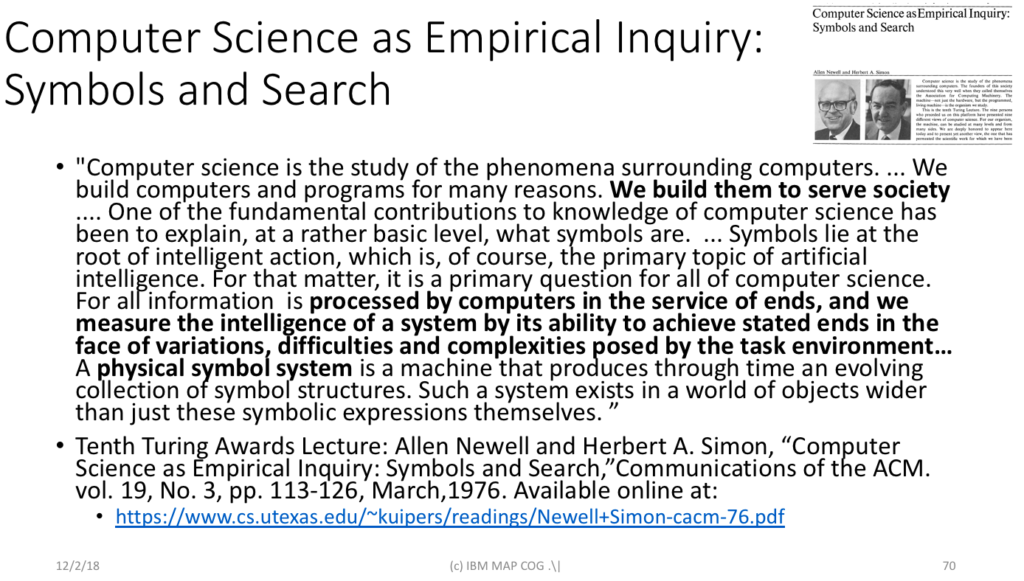Jeff Saperstein and Hunter Hastings co-authored the book “The Interconnected Individual” – read my summary here.
Jeff just sent Hunter and I the following Bertrand Russell quote about living in a more and more closely interconnected world…
“Love is wise; hatred is foolish. In this world, which is getting more and more closely interconnected, we have to learn to tolerate each other, we have to learn to put up with the fact that some people say things that we don’t like. We can only live together in that way. But if we are to live together, and not die together, we must learn a kind of charity and a kind of tolerance, which is absolutely vital to the continuation of human life on this planet.”
Surely tolerance can be taught and learned. Many social nuances associated with tolerance.
For some reason this Bertrand Russell quote reminded me of a puzzle I am working on related to computer science and physical symbol systems… Newell and Simon suggest that physical symbol systems are at the heart of computer science the same way the cell is at the heart of biology – and I would argue the same way service systems as entities are are the heart of service science…

“Lived lives” are series of thoughts (signals to the internal world), utterances (information signals to the external world), and actions (larger physical changes to the external world) – our thoughts, utterances, and actions all have social consequences, some direct and some indirect.
From a computer science/physical symbol perspective – this is not easy to represent in a general way. Paul Maglio and I claim that all service system entities are physical-symbol-system entities, so it is worthwhile for service scientists to ponder this a bit.
So when another entity says something we do not like – we register there utterance in our memory through an internal thought “I do not like that entity X uttered statement Y in social context Z”). We can follow this with a response – (a) Anger Response, (b) Sympathy Response, (c) Stoic Response, (d) Cowardly Response, (e) Courage Response, (f) Tolerance Response, etc. – furthermore we can also follow it with an (g) Analysis Response by asking both (i) Why was I offended? and (ii) Why did the other entity feel compelled to utter what they did in that context, what happened in their lived life that made that the logical or emotional response most appropriate in their mind for that situation?
I think the Tolerance Response that Bertrand Russell suggests in his quote can best be achieved when we appreciate different “lived lives” more fully.
Also from a service science perspective value co-creation happens best when there is deep levels of trust.
What is trust? And how do we measure it? In one service science paper – I do not recall which one – I think Paul and I write about trust in terms of having accurate models of others – when we simulate another and accurately predict what they will do next, we trust them more. When we fail to predict their behavior, if the result helps us more than what we predicted, our trust of that individual grows – I think this is what happens with parents and very children. When we fail to predict their behavior, if the result hurts us more than what we predicted, our trust of the individual diminishes.
References
Book Summary: The Interconnected Individual (Hastings and Saperstein
https://service-science.info/archives/4954